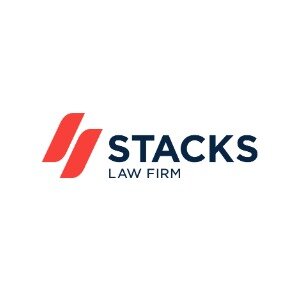Best Labor Law Lawyers in Forster
Share your needs with us, get contacted by law firms.
Free. Takes 2 min.
List of the best lawyers in Forster, Australia
About Labor Law in Forster, Australia
If you work or hire staff in Forster, Australia, it's crucial that you understand the state and federal laws applied in the region regarding labor practices. Labor Law, also known as employment law, includes legislation and regulations related to employee rights and employers' responsibilities. Key areas covered by Labor Law include minimum wage, working hours, leave entitlements, unfair dismissal, health, and safety provisions, as well as protection against discrimination at the workplace.
Why You May Need a Lawyer
While the law can appear straightforward, individual situations often add complexity. You might need a lawyer if you're an employee facing harassment, wage discrepancies, wrongful termination, or discrimination. For employers, it's vital to seek legal advice when drafting employment contracts, facing wrongful/unfair dismissal claims, or when you need to make changes that affect staff, such as redundancy procedures or changes in work regulations.
Local Laws Overview
Forster, being part of New South Wales (NSW), operates under both state and federal labor laws. Key laws include the Fair Work Act 2009, setting forth employee entitlements like minimum wage and leave; The Workplace Health and Safety Act 2011 ensures safe working environments and The Anti-Discrimination Act 1977 protects employees from workplace discrimination. Local employers must comply with these regulations to maintain fair, legal environments for their workers.
Frequently Asked Questions
1. Who is covered by the Labor Law in Forster?
Most employees in Forster fall under the National Workplace Relations System and are covered by the Fair Work Act 2009. However, some state public sector employees may be governed by state-specific laws.
2. Can an employer terminate an employee without a reason?
Termination without a valid, fair reason can constitute "unfair dismissal". If an employee believes they've been unfairly dismissed, they may lodge a complaint with the Fair Work Commission within 21 days of the dismissal.
3. What constitutes workplace discrimination?
Workplace discrimination refers to an unfair treatment of an employee based on certain attributes such as race, sex, age, disability, religion or sexuality which is against the Anti-Discrimination Act 1977.
4. What are the basic entitlements for employees under labor law?
Employees have a legal right to a minimum wage, maximum weekly hours, leave entitlements (including annual leave, personal/carer's leave, long service leave, and parental leave), public holidays, Notice and redundancy pay.
5. What to do if I think my employer is breaking labor laws?
If you suspect your rights are being violated, you can make a complaint to the Fair Work Ombudsman or seek advice from a labor law attorney.
Additional Resources
The Fair Work Ombudsman offers a wealth of resources about your rights and obligations under labor law. The Anti-Discrimination Board of NSW and SafeWork NSW provide resources regarding workplace discrimination and safety respectively. It's also beneficial to consult a local labor law attorney for personalised advice.
Next Steps
If you need legal assistance related to Labor Law, the first step is to consult a lawyer versed in Labor Law in Forster. They can guide you through your rights, course of action, and potential outcomes based on your individual circumstances. Remember, seeking timely legal advice can significantly alter the trajectory of your labor issues, leading to more favorable outcomes.
Lawzana helps you find the best lawyers and law firms in Forster through a curated and pre-screened list of qualified legal professionals. Our platform offers rankings and detailed profiles of attorneys and law firms, allowing you to compare based on practice areas, including Labor Law, experience, and client feedback.
Each profile includes a description of the firm's areas of practice, client reviews, team members and partners, year of establishment, spoken languages, office locations, contact information, social media presence, and any published articles or resources. Most firms on our platform speak English and are experienced in both local and international legal matters.
Get a quote from top-rated law firms in Forster, Australia — quickly, securely, and without unnecessary hassle.
Disclaimer:
The information provided on this page is for general informational purposes only and does not constitute legal advice. While we strive to ensure the accuracy and relevance of the content, legal information may change over time, and interpretations of the law can vary. You should always consult with a qualified legal professional for advice specific to your situation.
We disclaim all liability for actions taken or not taken based on the content of this page. If you believe any information is incorrect or outdated, please contact us, and we will review and update it where appropriate.








